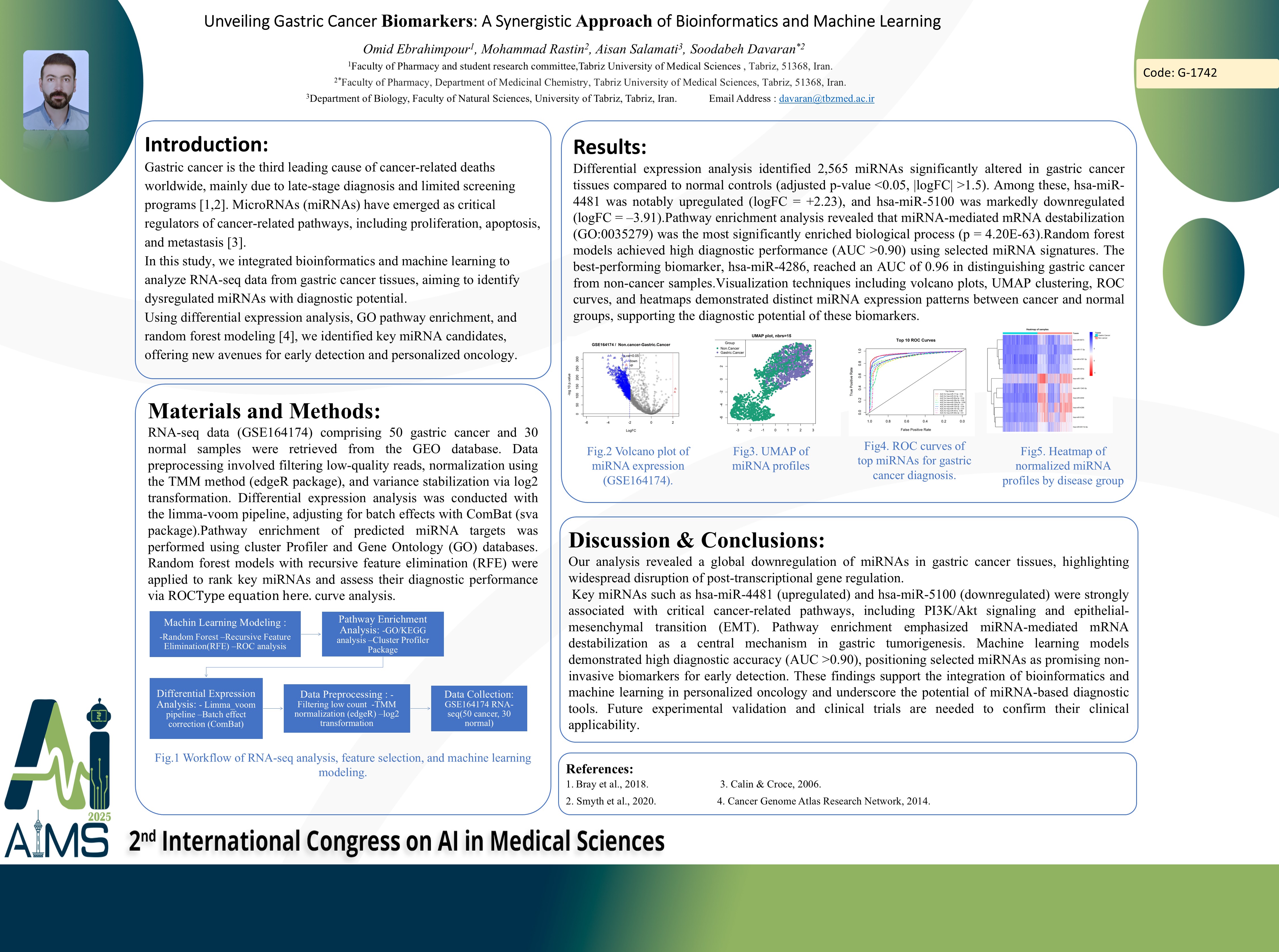Unveiling Gastric Cancer Biomarkers: A Synergistic Approach of Bioinformatics and Machine Learning
Code: G-1742
Authors: Omid Ebrahimpour ℗, Soodabeh Davaran *, Mohammad Rastin, Aisan Salamati
Schedule: Not Scheduled!
Tag: Biomedical Signal Processing
Download: Download Poster
Abstract:
Abstract
Background and aims: Gastric cancer continues to be a leading cause of cancer-related deaths worldwide, highlighting the urgent need for reliable biomarkers and effective treatments. This study aims to identify dysregulated microRNAs in gastric cancer through comprehensive bioinformatics analysis and machine learning approaches, with the hypothesis that specific microRNA signatures can serve as both diagnostic markers and therapeutic targets. Method: The study analyzed RNA sequencing data from the GEO dataset GSE164174 using an integrated computational approach. Differential expression analysis was performed to identify significantly altered microRNAs, followed by pathway enrichment analysis to investigate their biological functions. Machine learning models, particularly random forest algorithms, were employed to evaluate the diagnostic potential of the identified microRNA signatures. Results: Analysis revealed 2,565 significantly dysregulated microRNAs in gastric cancer, with hsa-miR-4481 showing notable upregulation and hsa-miR-5100 demonstrating significant downregulation. Pathway analysis identified miRNA-mediated mRNA degradation as a key molecular mechanism involved in gastric tumorigenesis. The random forest models achieved excellent diagnostic performance, with area under the curve values exceeding 0.90, indicating high predictive accuracy. Conclusion: This study demonstrates the potential of specific microRNA signatures as non-invasive biomarkers for gastric cancer diagnosis and as targets for therapeutic intervention. The integration of bioinformatics and machine learning provides a powerful framework for translating molecular discoveries into clinical applications. Future research should focus on experimental validation of these findings in clinical samples and the development of targeted therapies based on the identified microRNA pathways.
Keywords
Gastric Cancer, MicroRNA, Bioinformatics, Machine Learning
